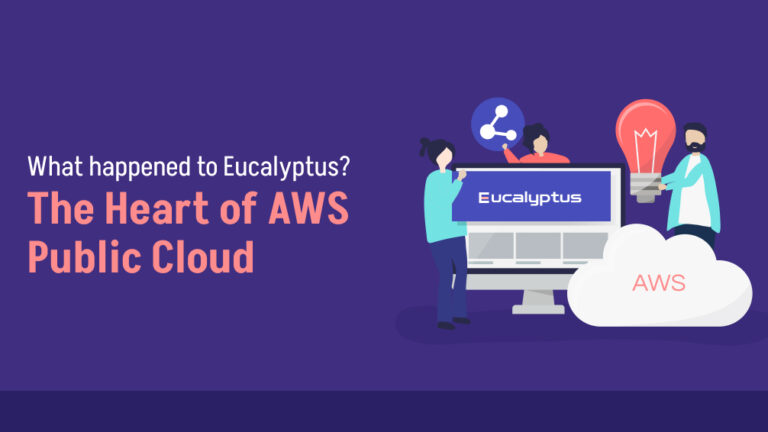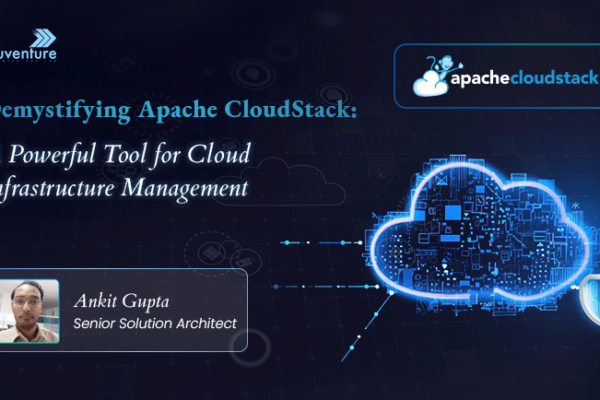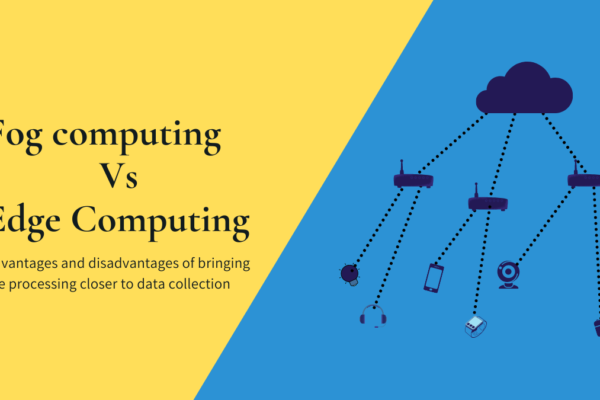
Eucalyptus is an open-source platform that implements IaaS or Infrastructure as a Service style cloud computing. As an IaaS product, Eucalyptus allows flexibility in provisioning our own Cloud resources on a needed basis.
Eucalyptus also is an acronym Elastic Utility Computing Architecture for Linking Your Programs To Useful Systems. This is the open-source appliance that forms the core of AWS or Amazon Web Services Cloud Computing Platform. Consequently, it is used for building AWS compatible Private and Hybrid Cloud Computing Environments.
In addition, Eucalyptus is architected to be compatible with a wide variety of commonly deployed Data center technologies. It works with most of the available Linux distributions including all Red Hat, Debian, and SUSE Linux variants.
Similarly, Eucalyptus can handle a variety of virtualization technologies including VMware, Xen, and KVM to implement the cloud abstractions it supports.

Due to its cost-effectiveness, flexibility and security, Eucalyptus can be easily deployed in a standard IT infrastructure for enjoying the benefits of both public and private cloud models. And its compatible interface with the AWS makes it possible to move workloads between AWS and the Data center effortlessly.Eucalyptus was started out in academics and is coded in Java and C. But it proved that it had a solid base for making its IaaS open-source platform the centre of the cloud-computing universe.Then again, the GitHub project page of Eucalyptus shows that the last stable release was on 2018 April. So, what happened to Eucalyptus?!
The roots of Eucalyptus goes back to the VGrADS or Virtual Grid Application Development Software. Let us have a quick look at the development timeline of Eucalyptus.
- Starting from 2003 to 2008, the VGrADS project was done at Rice University and othe institutions. Rich Wolski led a group at UCSB to become the CTO.
- On 2008 May, the first version v1.0 of Eucalyptus was released.
- On 2009 April, Eucalyptus was included with Ubuntu v9.04 Jaunty Jackalope. Meanwhile USBC (University of California, Santa Barbara) had already started it offering to the local Data centers.
- On 2012 March, the co-founders of Eucalyptus signed a formal agreement with AWS.
- On 2014 September, HP acquired Eucalyptus to provide it as a Public Cloud named HPE Helion.(Same year, Graziano Obertelli a co-founder and former CEO of Eucalyptus Systems, joins AppScale)
- On 2016 January, HP officially did a shutdown of HPE Helion. And Eucalyptus team was transferred to the HPE Enterprise Services division. (Same year, Dimitrii Calzago the Director of Cloud R&D in HP Enterprise, joins AppScale)
- On 2017 April, HP Enterprise Services division merged with Computer Sciences Corporation to form DXC Technology. But by the end of this year, DXC chose to stop development and support of Eucalyptus.
- By late 2017, AppScale Systems, led by members of the Eucalyptus founding team, forked the code to rename the project as AppScale ATS.
AppScale ATS is now a managed Hybrid Cloud Infrastructure software that emulates the core AWS APIs. It is currently the only independent and compatible AWS hybrid solution that meets all enterprise and technical requirements that Eucalyptus once provided.

There is even a Self-Service Demo of AppScale ATS ( https://www.appscale.com/self-service-demo/ ) that we can deploy on Equinix Metal. This enables us to freely evaluate AppScale using a one-node proof-of-concept deployment.

The outcome will be a fully functional private region of AWS, albeit without many resources.
The deployment comes with an easy-to-use GUI. We can use the AWS CLI, as well as any other AWS-compatible tools to test out the functionalities.

If all of the above seems troublesome for a simple testing, we can get a customized live demo of AppScale ATS from AppScale experts. This can be done from the URL https://www.appscale.com/request-a-customized-demo/
Eucalyptus was the first Private Cloud provider to launch. This was both a blessing and a curse. While this meant that it was pretty much the only private cloud game in town, it came early with a product that the developers struggled to get it to work.
Despite Eucalyptus investing heavily to improve its product in 2011, the market chose to adopt alternate Cloud Providers which arrived with much fanfare. Eucalyptus and its private cloud dream seemed dead. Except that it wasn’t. After years in development limbo, Eucalyptus has finally found a new home with AppScale ATS!




